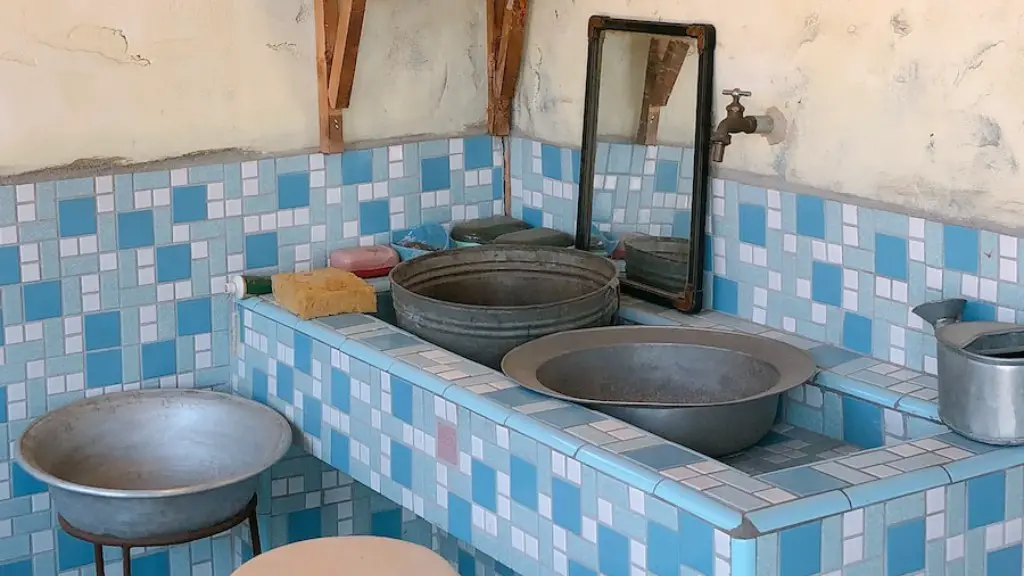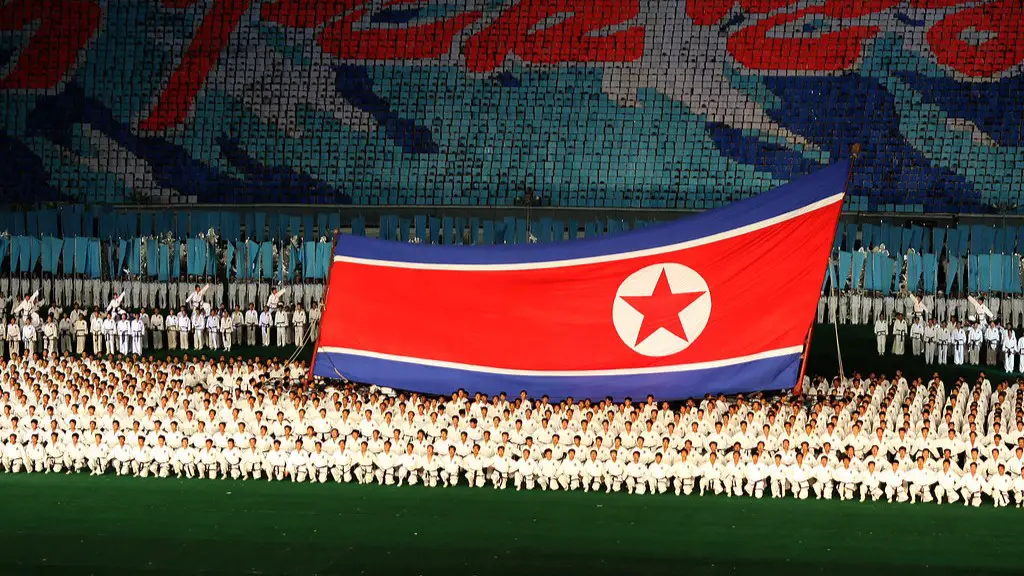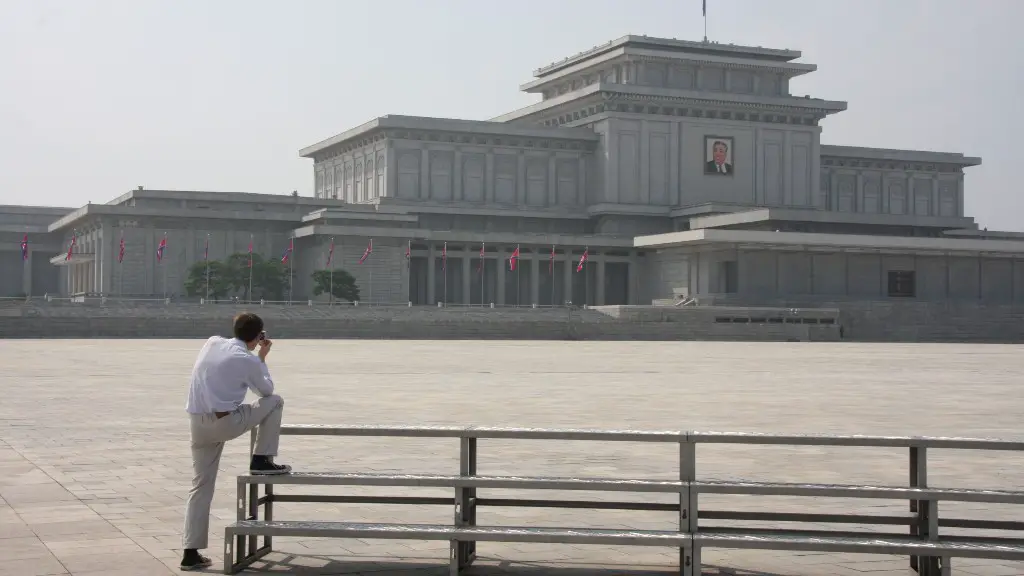Overview
North Korea is a mysterious country, which has long been cut off from the rest of the world. As such, no reliable information is available on the human rights situation in the country, making it difficult to evaluate. However, reports released by the United Nations and Amnesty International have shed light on some major concerns with the North Korean regime’s treatment of their citizens.
Violation of Political Freedom
The most prominent example of the North Korean regime’s disregard for human rights is the country’s violation of political freedom. The possession of political freedom is essential in order for a citizen to be able to have a say in the decisions which affect their life, but the North Korean government fully suppresses any form of political activity from the citizens. This political repression has been demonstrated through various means, such as limiting free expression, imprisoning political dissidents and censoring what information citizens can access.
Systematic Torture and Abuse
Another serious problem seen in North Korea is the systematic torture and abuse of its citizens. This treatment is consistently used to maintain the oppressive regime as well as to punish those that challenge it. The exact reasoning and extent of this torture and abuse is hard to ascertain due to the government’s tight control on information, but reports from defectors and other sources have revealed a variety of excruciating methods being used against the North Korean population, such as the well known “factory trial” program.
Denial of Basic Human Rights
The North Korean regime has also been found to be denying their citizens many basic human rights. This includes the rights to a fair trial, freedom of assembly, freedom of speech and peaceful protest as well as various other rights. Amnesty International have described many of these violations as “unacceptable” and has repeatedly called for the North Korean government to make drastic changes to its attitude towards the civil and human rights of the citizens.
Inhumane Working Conditions
In addition to this, North Korean workers are constantly subjected to inhumane working practices. The environment in which workers are expected to work in is often hazardous, and reports suggest that many workers are not adequately compensated for their labor with no guarantee of safety or job security.
Suppression of Global Awareness
The North Korean government also takes active steps to prevent global awareness of the country’s situation. Foreign journalists are rarely granted access and residents are forbidden from communicating with anyone beyond North Korean borders. The regime further impairs connectivity through the nation’s use of sophisticated tracking and censorship technology.
Human Trafficking
Finally, the issue of human trafficking should not be overlooked when assessing the human rights situation in North Korea. The recent events have highlighted the trafficking of North Koreans to China who, upon arriving in the country, are often subject to dangerous and exploitative labor as well as being used as prostitution or slaves.
The Impact of Human Rights Abuses
The human rights abuses in North Korea not only affect the citizens in the country but have serious consequences elsewhere as well. It is estimated that around 25 to 30 million people worldwide have been adversely affected by the oppression in the country and countless more forced to flee. Such historic events have lasting implications on the global community, in both symbolic and practical terms.
U.S. Sanctions
The United States is one of the clearest examples of a country taking a stand against North Korea’s human rights violations. Sanctions have long been imposed by the U.S. in attempts to pressure the regime into changing its attitude. This has had various effects on the country ranging from economic stifling to the cutting off of vital resources.
The Inter-Korean Summit
The Inter-Korean Summit of 2018 in April made huge improvements to the relationship between North and South Korea. It was the first summit of its kind in a decade and was met with applause worldwide. While no human rights-related issues were directly addressed, the other areas addressed such as nuclear disarmament and economic cooperation are seen as steps towards a more equal and peaceful Korean peninsula in the future.
The Role of International Organizations
International organizations such as the United Nations are also playing a crucial part in bringing awareness of the situation in North Korea to the world. Through various campaigns and strategies, the UN is attempting to bring light to the issues in the human rights violations committed by the North Korean regime and the effects these have on its people, making them an important part of the fight for human rights in the country.
North Korea’s Response to Human Rights Criticism
The North Korean government has long denied accusations of human rights abuses, citing lack of evidence as the main justification for their position. Even its denouncement of the United Nations report of 2014 – which strongly condemned the human rights violations – was simply dismissed as “hostile rhetoric”. As such, North Korea has yet to take meaningful action in the direction of changing its attitude towards its citizens’ civil and political liberties.
The Way Forward
Ultimately, the potential benefits which can come from changes in North Korea’s attitude towards human rights are immense. Many humanitarian organizations are attempting to bring awareness to the real and present issues affecting the country, and protests remain a powerful force for presenting the population’s wishes and frustrations. However, the greatest hope for progress lies in the actions of the international community, which must remain firm in the fight for human rights and continue to push the North Korean government towards granting its citizens the freedom they are entitled to.



